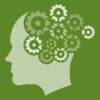According to a report by the Feinstein Institutes for Medical Research, the use of bioelectronic medicine may be an effective way of treating post-traumatic stress disorder.
The clinical study will be the result of a two-year and $700,000 grant from two leading health bodies: the National Institutes of Health and the Centers for Disease Control and Prevention.
Researchers aim to recruit 35 volunteers who served as first responders following the September 11, 2001 attack on the World Trade Center in New York City.
“Bioelectronic medicine is an emerging treatment strategy pioneered at the Feinstein Institutes for Medical Research, but studied by a growing number of investigators worldwide,” a news release reads.
“Feinstein scientists theorize that infinitesimal pulses of electricity can be used to correct a vast number of medical disorders, especially conditions that have inflammation at their core.”
“The form of bioelectronic medicine designed to address PTSD among World Trade Center first responders is known as transcutaneous auricular vagus nerve stimulation (taVNS),” the authors explained.
“Scientists see this method of addressing psychiatric conditions as having great promise. Vagus nerve stimulation could potentially benefit psychiatric disorders by “downregulating activity in brain regions related to stress responses and hyperarousal,” the authors concluded.


